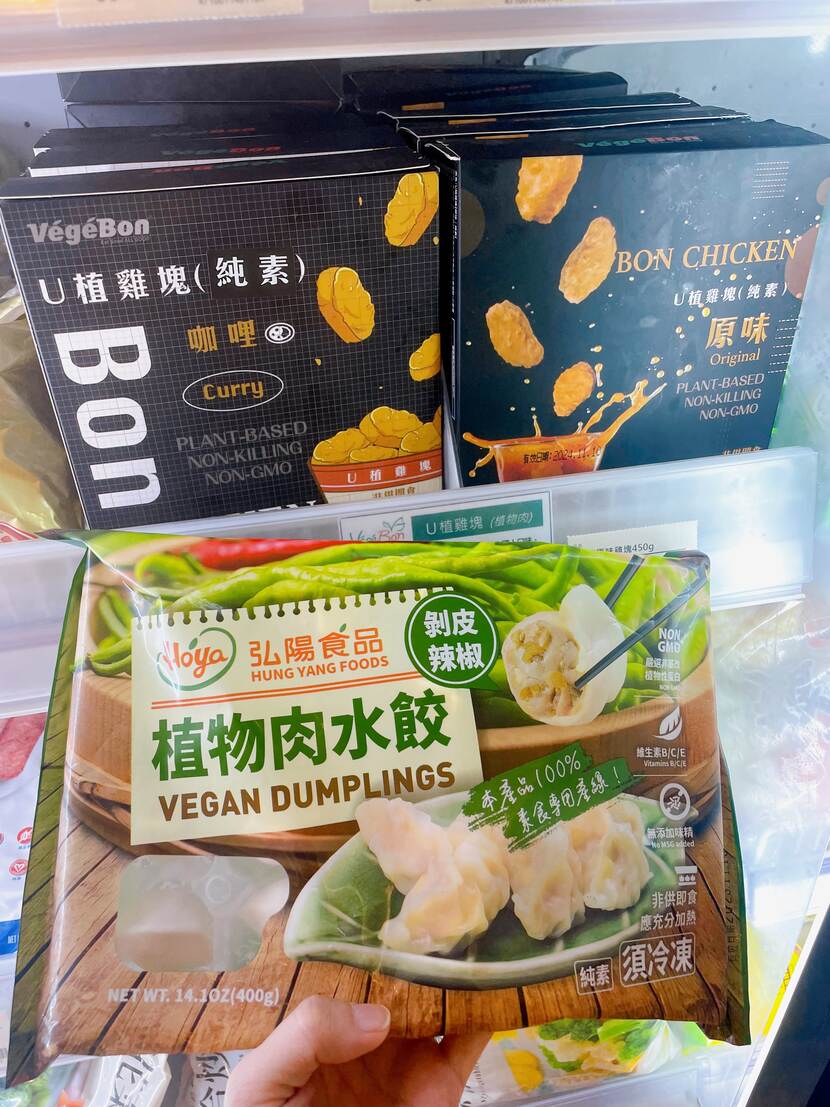Plant-based meat development in Taiwan
In a world grappling with the environmental and sustainability challenges posed by conventional livestock rearing, Taiwan emerges as a force in the development of plant-based meat alternatives. With a rich history of vegetarianism and a rapidly growing plant-based meat industry, Taiwan could be an important player as the world needs to transition towards more eco-conscious dietary choices .

Global challenges, Taiwanese solutions
According to calculations by the United Nations Food and Agriculture Organization (FAO), livestock rearing accounts for 14.5% of anthropogenic greenhouse gas emissions. Extensive rainforests have been sacrificed to provide land for livestock farming and crop cultivation, causing significant environmental degradation. With the global population projected to surpass 10 billion by 2050, the foreseeable challenge lies in how to sustainably feed this exponentially growing population within the constraints of limited land resources. The search for "meat alternatives" has become an urgent priority for nations worldwide. The options for meat substitutes are diverse, including mushrooms, insects, algae, fungi, cultured meat, and more, proposed by food scientists. However, due to production costs, many of these options must still be in the experimental development stage. Plant-based meat is the most easily industrializable and currently the most competitive choice.
Taiwan holds the second highest proportion of vegetarian population globally, approximately 13%, following only India. The vegetarian market in Taiwan is valued at around 60 billion New Taiwan Dollars (NTD), primarily supported by religious vegetarian practices, making Taiwan a diverse hub for vegetarian food processing. The plant-based meat industry in Taiwan has been developing for over 30 years, with rapid growth in recent years. According to Euromonitor data, the plant-based meat market in Taiwan reached 10 billion NTD in 2020 and is projected to grow to 20 billion NTD by 2025.
Taiwan's plant-based meat ingredients are predominantly imported, and around 80% of carbon emissions from plant-based meat production are attributed to material transportation. To reduce emissions from transportation, a new high-protein soybean variety, "Taichung No. 1," was developed through collaboration between local authorities and the Agricultural and Food Agency. The soybeans were grown on approximately 34 hectares of land in 2022, with an expected increase to 100 hectares by 2023, aiming for carbon neutrality by 2030. Although domestic soybean production is costlier, utilizing local soybeans to produce low-carbon plant-based meat could increase total costs by 20% while significantly reducing carbon footprint by 60%.
Plant-based meat products in Taiwan
Notably, there are various delicious plant-based meat products available in Taiwan. For example, Lypid, a company founded by Taiwanese entrepreneurs in Silicon Valley, and set up R&D center in Taipei, has developed PhytoFatTM, a concept of encapsulating liquid plant-based fats to create juicy textures in foods. This technology results in plant-based meat with lower cholesterol, and trans fats, reduced calorie content by 33%, and reduced saturated fatty acids by 91% compared to conventional meats.
Established meat processing company Taiwan Farm Industry Co., Ltd. (T-Ham) launched the subsidiary " Xuyu Biotech" in 2020, introducing a plant-based meat brand, "NO MEATING." Products such as frozen vegetarian chicken nuggets, vegetarian meatballs, and ready-to-eat snacks have gained popularity.
Moreover, DaChan Great Wall Group invested NT$1 billion in 2022 to develop a line of plant-based meat substitutes under the subsidiary "Neo Foods Co," producing items like chicken nuggets and burgers, with their "beef noodles" even ranking in the top 10 at the Taipei International Beef Noodle Festival.
The Food Industry Research and Development Institute made a breakthrough and presented at BIO Asia-Taiwan 2023. A deviation from the traditional use of texturized vegetable protein (TVP), the new approach creates whole-cut vegetable meat with a fiber structure without reconstituting; this allows for a texture more authentic to real meat. The plant-dependent meat analogs can be made to mimic the taste of chicken, pork, fish, or beef, which come with high amounts of soy protein and wheat gluten. No further additives, such as adhesive agents, are needed during production except for simple seasoning.
Food for thought
With global health concerns, extreme weather, and outbreaks like avian flu and African swine fever, a new wave of dietary trends has emerged, including plant-based meats. According to the "Food for Thought" report, plant proteins will replace 23% of global meat consumption by 2035. Nearly 80% of Taiwan's plant-based meat products are exported and have long been integrated into the international industrial chain, the country's well-established industry chain, coupled with innovative technologies, positions it as a strong contender on the global stage.
Dutch plant-based meat products were gaining popularity in the Netherlands and beyond. The plant-based food industry, including meat alternatives, has experienced significant growth for the past few years. Additionally, Dutch supermarkets and restaurants were increasingly offering plant-based options, contributing to the overall popularity of plant-based eating in the Netherlands. For Dutch ingredient suppliers, new technology, or ready products for plant-based meat who wish to start exploring the Taiwan market or seek cooperation opportunities, don't hesitate to get in touch with tai-lnv@nlot.org.tw.
Click for more information about The Food Industry Research and Development Institute technique